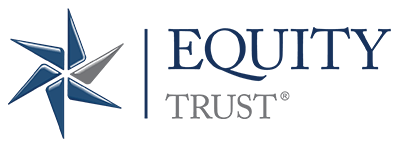The Good, the Bad, and the Fraudulent
With many different fraud schemes out there, it is important for Equity Trust Company clients to be aware and educated in order to protect their investments. As the owner of a self-directed IRA, our clients’ knowledge and expertise is their first line of defense against fraudulent investments.
The only investments within our clients’ accounts are the investments which they find and choose to hold. Performing due diligence for each investment opportunity is good practice. It will help weed out unsound investments and protect from fraud.
Remember: There’s a line between a good investment and a too good to be true investment.
Doing Your Homework
Due diligence is the care an investor takes before committing to an investment. Reading the customer reviews before buying a product online, visiting the college a child is interested in attending, checking out Consumer Reports while looking for a new vehicle, comparing the current prices and having a title search and inspection before buying a home are all examples of due diligence you perform before making a major investment.
The same idea holds true when seeking out investments for a self-directed IRA; we urge our clients to investigate the opportunity and make sure they have all the facts before committing to the purchase or sale.
One of the best things about having a self-directed IRA is the ability to use a lifetime of knowledge and experience to invest. The contacts and resources developed over time can help with growing your IRA. The indicators and trends you know to watch or watch out for now work towards growing your IRA. Equity Trust Company lets our clients use the common business sense they have come to trust in their professional life to avoid schemes, scams, and fraud.
Performing due diligence is also necessary when our clients choose to invest in opportunities outside of their prior experience. While one may have practical skills to help guide them through previously unchartered waters, Equity Trust Company knows our clients will need to develop new skills and questions to ask.
Salespeople promoting legitimate investments know a prospective investor will have serious questions to ask and will readily provide the information you seek. If you feel like questions aren’t welcome or respected this should raise a warning flag.
The same is true for making sure the answers you receive actually answer your questions. Are you able to verify the claims made about the patent or trademark, or the salesperson’s qualifications and licensing?
If you asked for financial documents, proof of ownership of the collateral securing the note, did you receive it without a fight or delay? What was their reaction when you told them you needed your attorney, accountant, or financial advisor to review the investment?
Be aware of the following while performing due diligence to avoid being the victim of a fraud scheme or scam:








